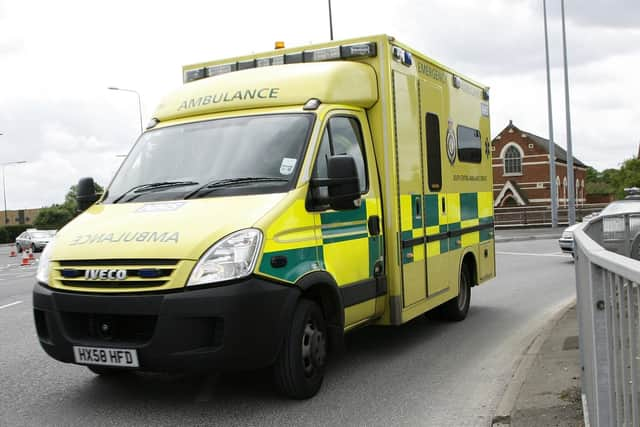NHS strike dates: Two days of strike action cancelled just days before ambulance walk-out
and live on Freeview channel 276
GMB, Unite and Unison union members at South Central Ambulance Service NHS Foundation Trust (Scas) had planned go on strike three times collectively over the course of this month. With all three unions passing the legal strike thresholds, it would have been the largest walk-out the ambulance service has faced since widespread strike action began.
These were set to be part of nationwide ambulance strikes, but two of the three dates have now been cancelled.
Advertisement
Hide AdAdvertisement
Hide AdInitial plans were for strikes on March 6, 8 and 20 – but the first two dates have been suspended after the Department of Health and Social Care agreed to discuss pay for this year and next year, the GMB union said.


Mark Ainsworth, director of operations at Scas, said: ‘The escalation of the industrial action in Scas now means it is at a level that has already been experienced by other NHS ambulance trusts during this dispute. We have been liaising closely with colleagues in those trusts to help ensure that Scas as an organisation is as prepared as possible to continue prioritising our services to patients with immediately life-threatening or time critical conditions when industrial action is taking place.
‘We have seen on previous days where significant industrial action in the NHS outside of Scas has taken place, that the public have heeded our pleas to only call 999, or go to A&E, for immediately life-threatening or serious emergencies. I would urge people in our region to help us - and more importantly help those people who really need us in a life or death situation - to please keep doing this.
‘We need people to seek help and advice from alternatives to 999, such as their own GP or local pharmacy where services are unaffected. For urgent help for people aged five or over, use NHS 111 online at 111.nhs.uk. Outside of normal GP hours, call 111 for children under five and only call 999 if it's a life-threatening emergency.’
Advertisement
Hide AdAdvertisement
Hide AdThe strike action on March 8 was set to be the most significant, with Unison members set to walk out on that particular date.
Mr Ainsworth added: ‘From our conversations with other ambulance trusts, where this level of industrial action has taken place, we know it is vital to ensure that we have sufficient clinicians in our clinical co-ordination centres to be able to assess, triage and help callers with urgent, but not emergency needs, find the most appropriate alternative care to an ambulance response.
‘This will ensure that where we have less people and resources than we expected to be able to respond to calls due to industrial action, they will be protected as much as possible to ensure they are only available for patients calling 999 with the most serious or life-threatening emergencies.’
Along with military personnel supporting 999 operations, managers have been freed from ordinary duties to help keep pace with 999 and 111 demand.
Advertisement
Hide AdAdvertisement
Hide AdAgreements have also been made with union colleagues in advance to ensure staff taking industrial action can be recalled to duty if there is an unacceptable risk to a patient.
